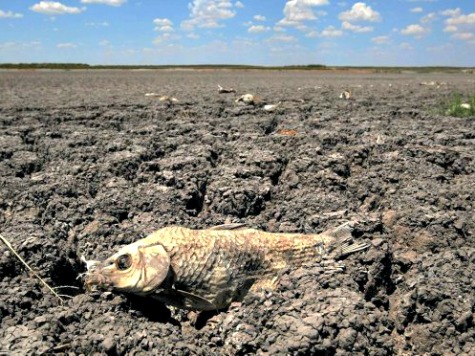“With the stroke of his pen, the Governor changed over 100 years of water laws – without the people’s input. This is not the democracy Californians deserve.” – State Senator Jim Nielsen
In the midst of drought and heightened overdrafting problems, California passed legislation allowing the state to control and regulate the use of groundwater on privately-owned land. Citizens, previously free to use whatever water was underneath their own land, are now preparing to challenge this governmental undermining of their property rights in court.
Now that landowners will no longer have full rights to the water underneath their own property, the state will have the final say on how much groundwater should be used – complete with power to enforce via fines and fees.
The new laws will create agencies to function as “water police.” Landowners will be required to register wells on their property, which will be monitored with water meters and subject to inspections without consent. If they don’t comply with standards set by faceless bureaucrats, they’ll be subject to penalties or even have their wells shut down.
Restrictions could seriously affect local farmers who use groundwater to grow crops and feed livestock, not to mention use in their own homes. These same farmers produce a considerable percentage of the nation’s produce. Increased regulation may also negatively affect land value.
The state legislature apparently didn’t trust the public enough to include them in deliberations. Perhaps they feared the public wouldn’t support new measures which will likely intensify existing regional water tensions, pitting “the little guys against the big boys.” The new regulations also conveniently exempt “the largest consuming counties like Los Angeles and their basins.”
The bills were “hastily cobbled together without regard to historical legal precedent and private property water rights,” says Nielsen. Yet, Governor Jerry Brown signed them anyway.
The legislation will go into effect on January 1, 2015, and lawsuits are sure to follow. Groundwater pumping in Kings County has not been regulated like this before, although NASA satellites have been gathering information about private pumping for a decade. The courts will have the job of delineating between personal property rights and the scope of public regulation.
Many are preparing to preserve what can be salvaged of citizens’ property rights in the wake of the legislation. The California Farm Bureau Federation opposed the new laws and will be closely monitoring implementation.
Erik Kaeding, deputy Kings County counsel, framed the issue now that the law has been passed:
If I’m an overlying landowner, I have the right to pump as much water as I can for reasonable and beneficial use on my own land. The questions are going to be about what is reasonable and beneficial.
And who will be deciding that question now? Not the people, not the local government, but the state. As usual, regulation requires more regulation. Gov. Brown is now pushing for more legislation to “streamline resolution” of the expected avalanche of lawsuits.
Worse yet, the laws require local agencies to produce new sustainability plans within 5-7 years. To complicate matters, that process will likely be drawn out, as the courts tease out all the implications of the new laws. If sustainability plans don’t pass muster, the state will have the power to take direct control of groundwater. Local governments may very well be caught in a catch-22.
Nielsen acknowledges that California needs to face its water use problems, but says tighter state control is not the answer. A better solution can be found through responsible local management. Instead of handing down legislation that gives “dictatorial control to state agencies,” the state should work with local governments and include the input of citizens. One thing’s for sure: an element as vital to life as water should not be in the hands of the government.
After all, he who controls the water, controls everything.
Mark Meckler is the President of Citizens for Self-Governance, which created the Convention of States Project.

COMMENTS
Please let us know if you're having issues with commenting.